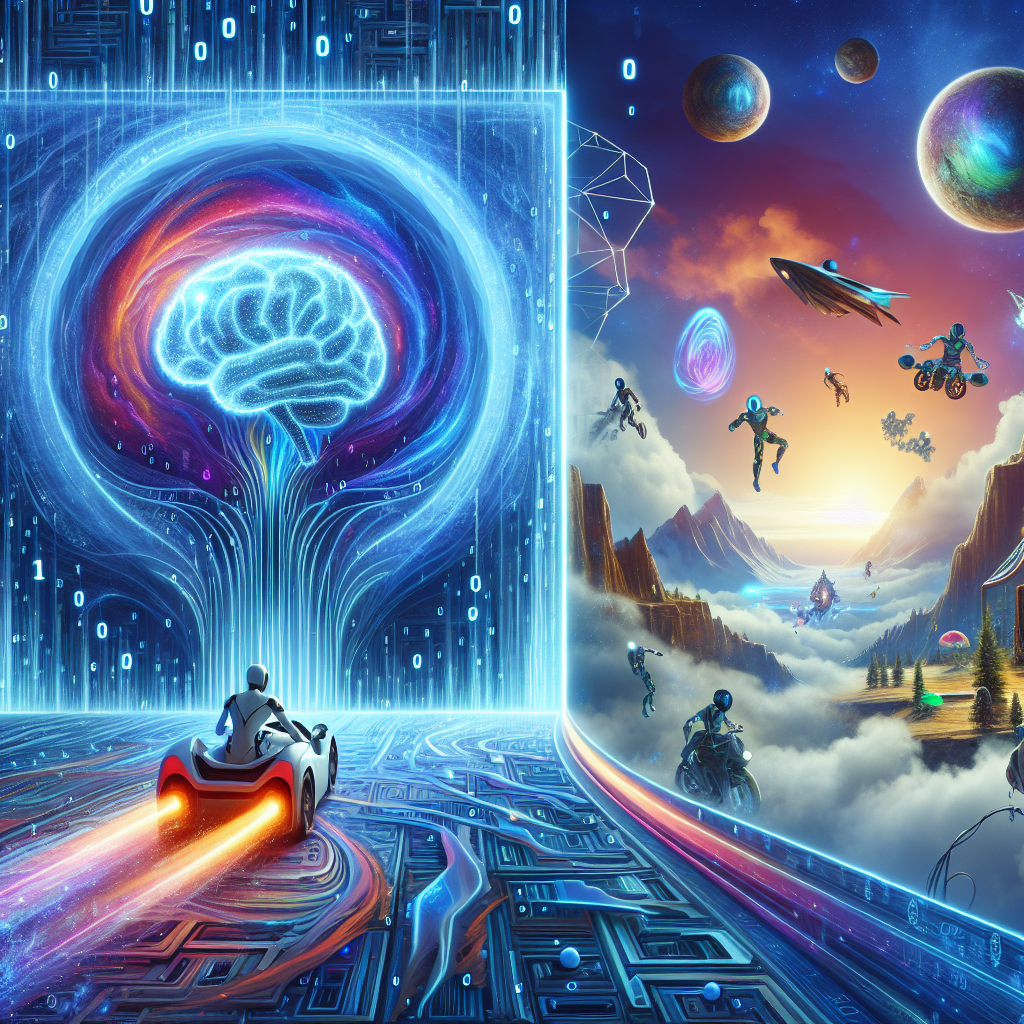In recent years, the gaming industry has seen significant advancements in technology, particularly with the rise of AI-powered game engines. These engines are revolutionizing the way games are developed, played, and experienced. With the power of artificial intelligence, game developers are able to create more immersive, dynamic, and engaging gaming experiences than ever before. In this article, we will explore the impact of AI-powered game engines on the future of gaming and discuss some of the most exciting developments in the field.
What are AI-Powered Game Engines?
AI-powered game engines are software platforms that use artificial intelligence algorithms to enhance various aspects of game development and gameplay. These engines can perform a wide range of tasks, from generating realistic graphics and physics simulations to creating intelligent non-player characters (NPCs) and adaptive game environments. By integrating AI technology into game engines, developers are able to create more complex and interactive gaming experiences that respond dynamically to player actions.
One of the key benefits of AI-powered game engines is their ability to adapt and learn from player behavior. This means that games can become more challenging or easier based on the player’s skill level, preferences, and playing style. For example, in a first-person shooter game, the AI engine can adjust the difficulty level of enemies based on how well the player is performing, providing a more personalized and engaging experience.
AI-powered game engines also enable developers to create more realistic and immersive environments. By using AI algorithms to generate lifelike graphics, physics simulations, and sound effects, games can transport players to virtual worlds that look and feel like the real thing. This level of realism can greatly enhance the player’s immersion and enjoyment of the game.
Furthermore, AI-powered game engines can help developers streamline the game development process and reduce the time and resources required to create a game. By automating certain tasks such as level design, character animation, and bug testing, developers can focus more on the creative aspects of game development and deliver high-quality games faster.
Overall, AI-powered game engines have the potential to revolutionize the gaming industry by offering developers new tools and capabilities to create innovative and engaging gaming experiences.
The Future of Gaming with AI-Powered Game Engines
The future of gaming with AI-powered game engines looks bright, with many exciting developments on the horizon. Here are some of the key trends and advancements that we can expect to see in the coming years:
1. Personalized Gaming Experiences: AI-powered game engines will enable developers to create more personalized gaming experiences that adapt to each player’s unique preferences, skill level, and playing style. This level of customization can enhance player engagement and immersion, making games more enjoyable and rewarding.
2. Enhanced Realism: As AI technology continues to improve, game engines will be able to generate even more realistic graphics, physics simulations, and sound effects. This will allow developers to create virtual worlds that are indistinguishable from reality, providing players with truly immersive gaming experiences.
3. Intelligent NPCs: AI-powered game engines will enable developers to create intelligent NPCs that behave and interact with players in more realistic and dynamic ways. These NPCs can adapt to changing game conditions, learn from player actions, and provide more challenging and engaging gameplay experiences.
4. Dynamic Game Environments: AI-powered game engines will allow developers to create dynamic game environments that evolve and change in real-time based on player actions. This can create more unpredictable and exciting gameplay scenarios, keeping players engaged and on their toes.
5. Streamlined Game Development: AI-powered game engines will help developers streamline the game development process by automating repetitive tasks and providing tools to optimize game performance and quality. This can reduce development time and costs, allowing developers to focus on creating innovative and high-quality games.
Overall, the future of gaming with AI-powered game engines looks promising, with new opportunities for developers to create immersive, dynamic, and engaging gaming experiences that push the boundaries of what is possible in the gaming industry.
FAQs
Q: How are AI-powered game engines different from traditional game engines?
A: AI-powered game engines use artificial intelligence algorithms to enhance various aspects of game development and gameplay, such as generating realistic graphics, creating intelligent NPCs, and adapting game environments based on player actions. Traditional game engines do not have these advanced AI capabilities and rely on manual programming and design techniques.
Q: What are some examples of AI-powered game engines?
A: Some examples of AI-powered game engines include Unity ML-Agents, Unreal Engine 4, and CryEngine. These engines incorporate AI technology to enhance various aspects of game development and provide developers with tools to create more immersive and engaging gaming experiences.
Q: How can AI-powered game engines improve the player experience?
A: AI-powered game engines can improve the player experience by creating more personalized, realistic, and dynamic gaming environments that adapt to each player’s preferences and playing style. This can enhance player engagement, immersion, and enjoyment of the game.
Q: What are some challenges associated with AI-powered game engines?
A: Some challenges associated with AI-powered game engines include the complexity of integrating AI algorithms into game development, the need for specialized expertise in AI programming, and concerns about data privacy and security. Developers must also ensure that AI-powered game engines are ethically and responsibly implemented to avoid potential negative consequences.
In conclusion, AI-powered game engines are revolutionizing the gaming industry by offering developers new tools and capabilities to create innovative and engaging gaming experiences. With their ability to personalize gameplay, enhance realism, create intelligent NPCs, and streamline game development, AI-powered game engines are shaping the future of gaming and opening up new possibilities for immersive and dynamic gaming experiences. As AI technology continues to advance, we can expect to see even more exciting developments in the field of AI-powered game engines that will push the boundaries of what is possible in the gaming industry.

